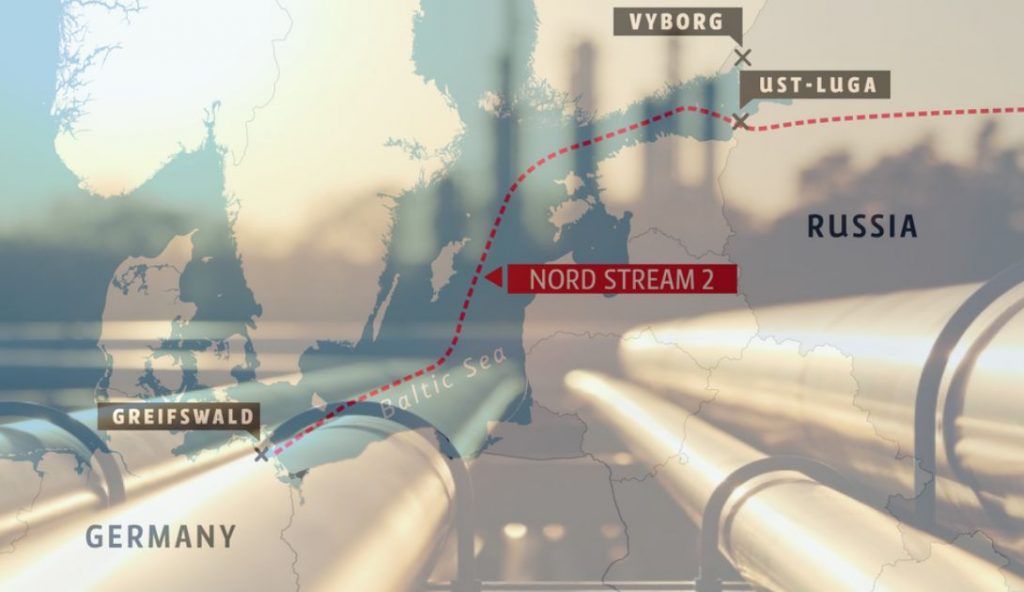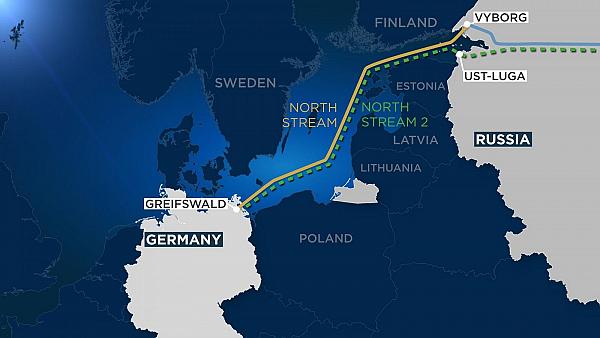
The Nord Stream-2 natural gas pipeline will soon become operational despite Washington’s attempt to politicize the project, Russian Foreign Ministry spokesperson Maria Zakharova said last week. Her response came after US President Joe Biden on 15 July had said: “My view on Nord Stream 2 has been known for some time. Good friends can disagree… Russia must not be allowed to use energy as a weapon to coerce or threaten its neighbors.”
In a joint US-Germany statement released by Biden and German Chancellor Angela Merkel on 21 July, Germany promised to implement the Minsk agreements via the Normandy format while condemning Russian ‘aggression’. It reiterated how Germany would retaliate – both from the European and national level – if Russia weaponized energy to achieve its political agendas. The joint statement also promised a 10-year extension of the Moscow-Kyiv gas transit agreement. Energy transitions of Ukraine and other Central and Eastern European countries will also be supported. The establishment of the Green Fund backing Ukraine’s energy sector through investments was also announced.
Kremlin spokesperson Dmitry Peskov responded: “Russia has always been and remains a responsible guarantor of energy security on the European continent.” The office of Ukrainian President Volodymyr Zelenskyy opposed the deal, saying: “The decision on Nord Stream 2 cannot be taken behind the backs of all those whom the project poses a real threat to.”
The Nord Stream-2 pipeline
Nord Stream-2 is a part of the larger Nord Stream offshore natural gas pipeline system running under the Baltic Sea from Russia to Germany. It includes two active pipelines forming the original Nord Stream, and two further pipelines nearing completion termed Nord Stream-2. At a length of 1230 kilometres, Nord Stream-2 runs parallel to the existing Nord Stream pipeline. Its independence from the existing Nord Stream pipelines ensures greater supply security.

The pipeline has been the subject of heated debate for years as it affects energy security, the environment, and the economy. The primary opponents – Ukraine, Poland and the Baltic states – consider the project a financial and security threat. They are worried about whether Germany’s economic interests outweigh its ability to take a firm stance against Russian aggression. Their economies losing on gas transit fees also concern them. From the security perspective, reduced Russian dependence on gas transit leaves these countries vulnerable to Moscow’s malicious activities. Kyiv is particularly worried about this, given the Crimean annexation. Both Ukraine and Poland released a joint statement to express their discontent in which they said that the pipeline poses a threat to them, NATO and the EU. On 22 July, the EU said that the pipeline was “not of common EU interest”. Merkel, however, considers the deal a “good one” and has given Russia the benefit of the doubt. Environmentalists criticize the deal claiming it affects the marine ecosystems and jeopardizes the EU’s climate action goals.
Opposition from the US
Initially, the US had firmly opposed the project. The US sanctions, which stopped the project at 98 per cent, were concerned about the increasing European reliance on Russian energy. Differences persisted even within the US; several lawmakers opposed the agreement, saying it only empowered Russia and betrayed Ukraine. A senior US official justified Biden’s move by saying that the US compromised with an important ally against its better judgement while pointing out the ineffectiveness of the sanctions.
The Kremlin has consistently denied allegations of weaponizing energy and maintained that Nord Stream-2 is wholly a commercial project. However, Moscow objected to the US-German language, saying it villainized them. Putin is said to have agreed to discuss the extension of the gas transit deal with Ukraine.
Zakharova said that Washington seems to be pursuing its own geopolitical and economic interests by disrupting the implementation of the pipeline, but the project is beneficial for Europe. Russia has stressed that it is completely against the politicization of energy cooperation.
